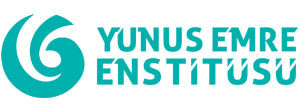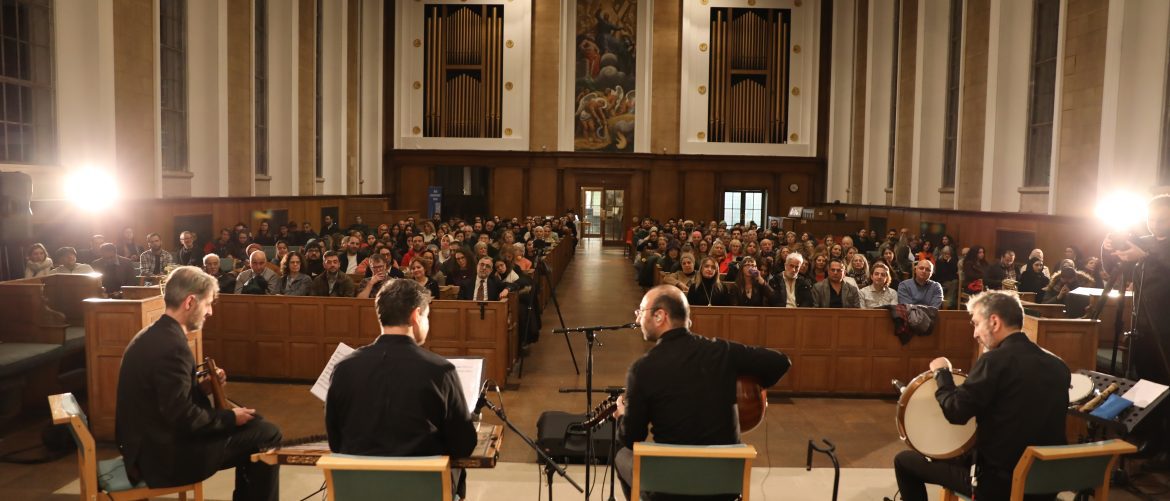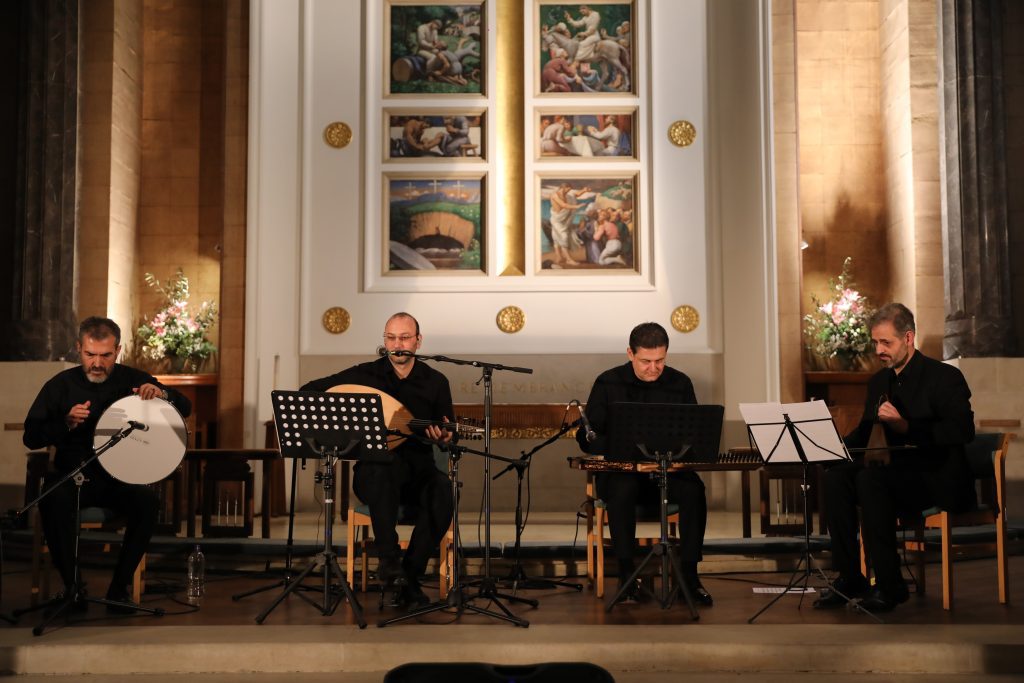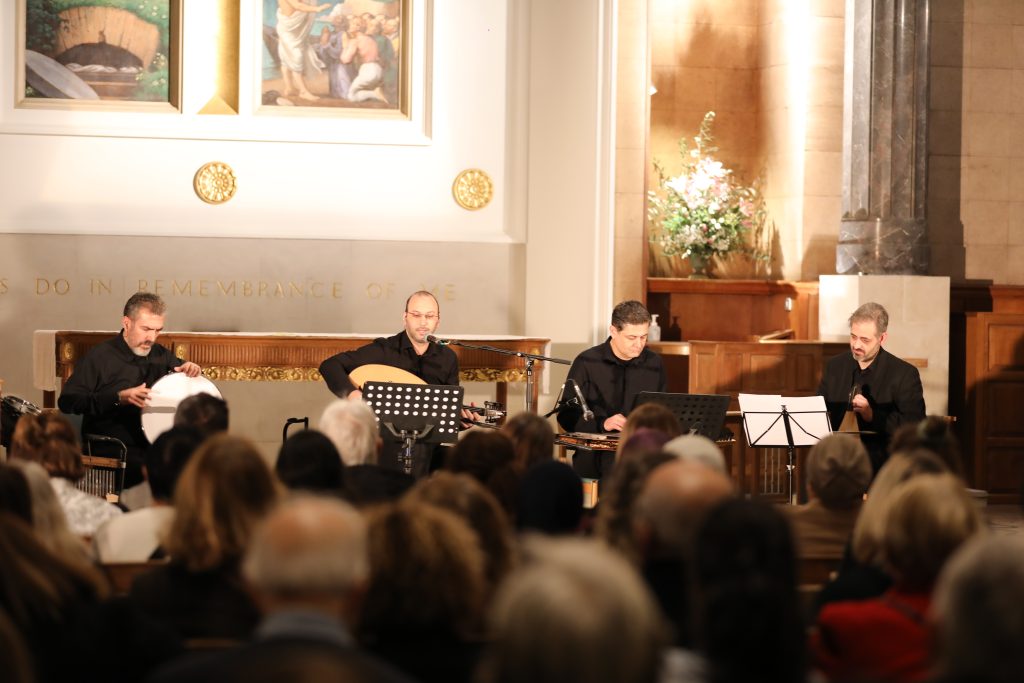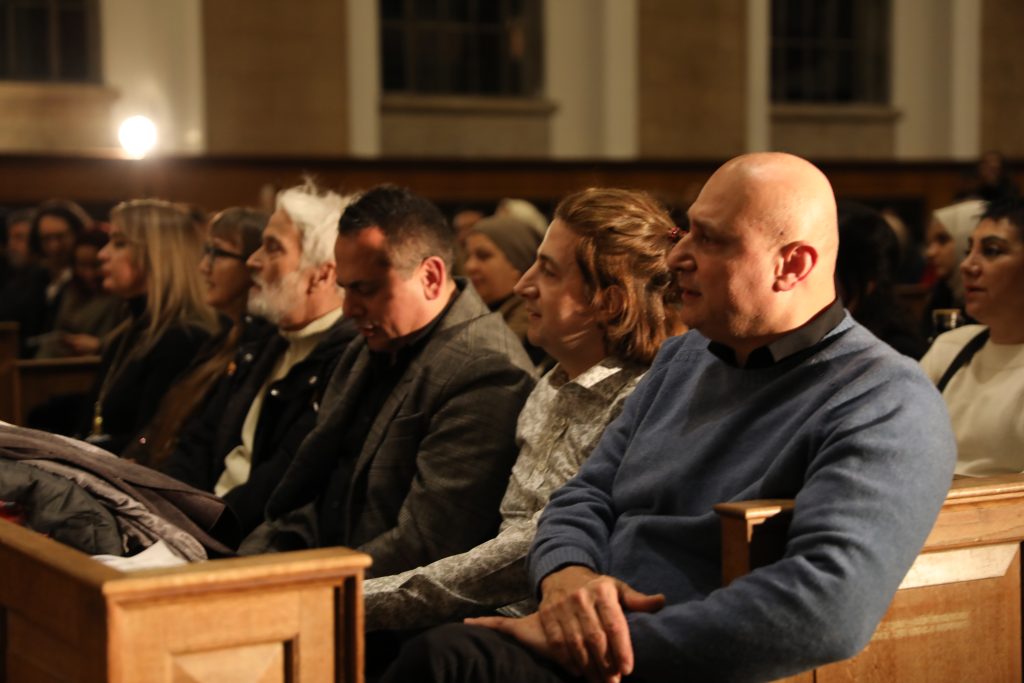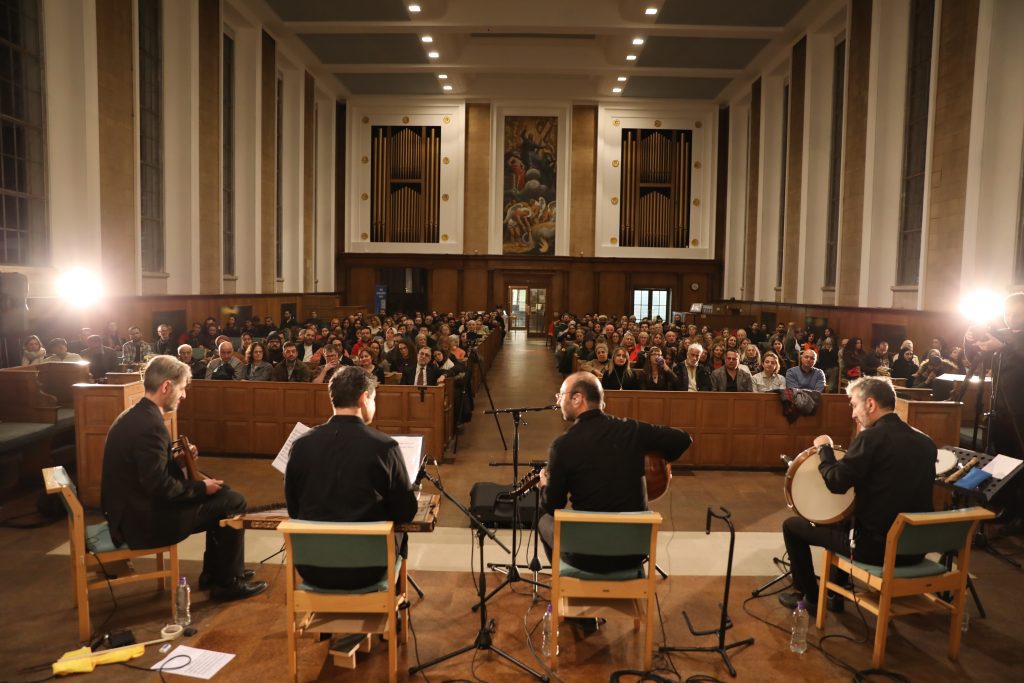On Wednesday 24th of January, Yunus Emre Institute London presented the “Dede Efendi” Turkish Classical Concert, a mesmerising performance of Ottoman classical music by Dede Efendi, one of the most influential composers of the 18th-19th century. The concert took place at St. Mary’s Church Islington, a historic and beautiful church from the 12th century that enhanced the atmosphere of the event.
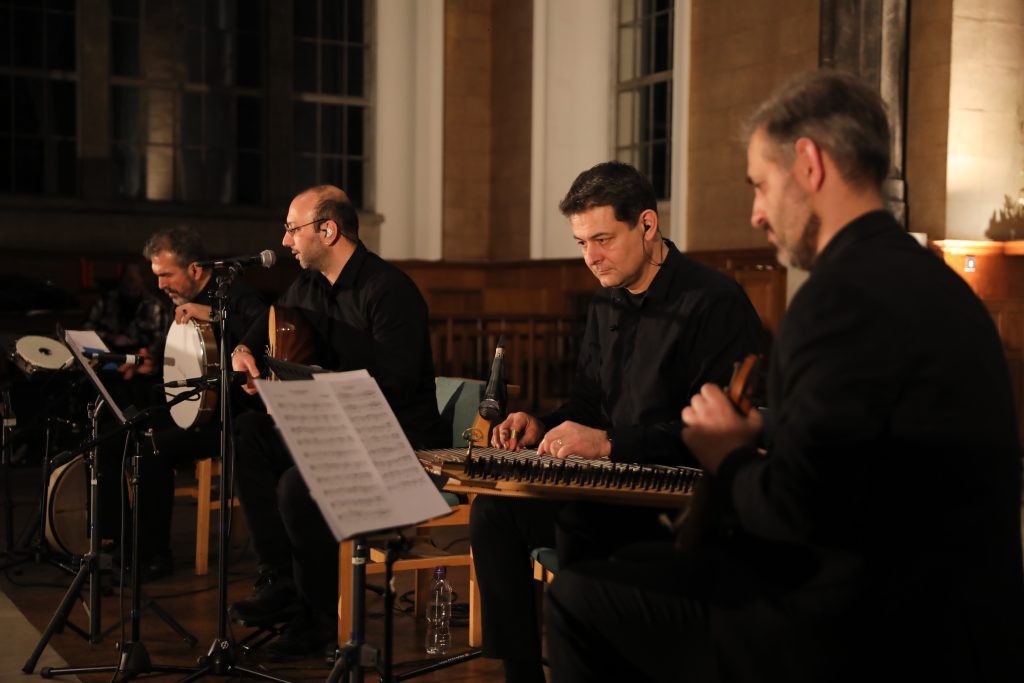
The concert was a celebration of Turkish classical music and the legacy of Dede Efendi, who was born in 1778 in Istanbul and composed nearly 300 pieces, ranging from mystical Mevlevi rituals to secular tunes. The concert was organised under the auspices of Yunus Emre Institute London.
The ensemble for the evening boasted a lineup of exceptionally talented musicians with Baha Yetkin on the oud and vocals, Serdar Yılmaz on the qanun, Alexandros Koustas on the classical kemenche and Muammer Sağlam on the percussion. They played a selection of Dede Efendi’s compositions, each representing a different aspect of his musical style and legacy.
Hammâmîzâde İsmâil Dede Efendi, born in 1778, in Istanbul, was a luminary in the world of Turkish classical music, leaving an indelible mark as a composer, ney player, and vocalist. He learned from esteemed figures such as Uncuzade Mehmet Emin Efendi and then Ali Nutkî Dede of the Yenikapı Mevlevi Lodge in 1798. It was at this lodge where he drew the attention of Ottoman Sultan Selim III who established him among the favoured composers of the time. Dede Efendi’s legacy endures through the survival of nearly 300 of his compositions. Today, his compositions stand as a testament to his enduring impact on Turkish classical music, capturing the essence of an era and a culture.
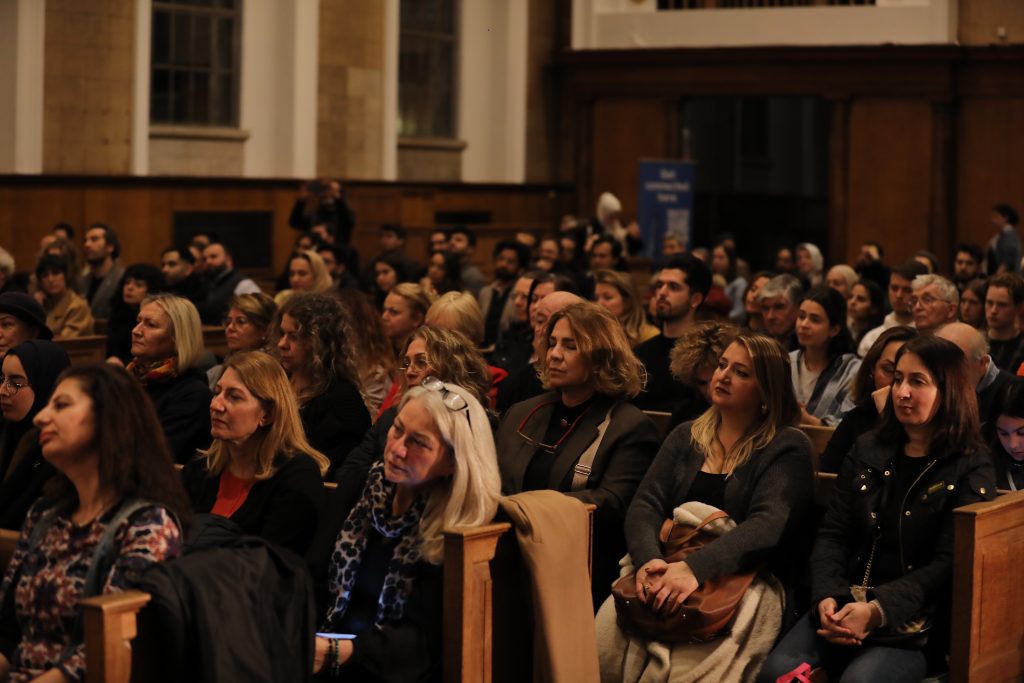
Among the pieces played was “Ey Büt-i Nev Eda Olmuşum Müptela (I Have Become Addicted to the Idol of Farewell)”. The percussion created a rhythmic base and the kemenche played a soaring melody, while the oud and the vocals added depth and emotion. “Gitti de Gelmeyiverdi (Left and Never Came Back)”, one of Dede Efendi’s most popular songs, was also one of the highlights of the evening! The kemenche and the vocals conveyed the grief and the qanun and the oud added some contrast and complexity. One of the most memorable songs of the night, the audience was touched by the beauty of this piece.
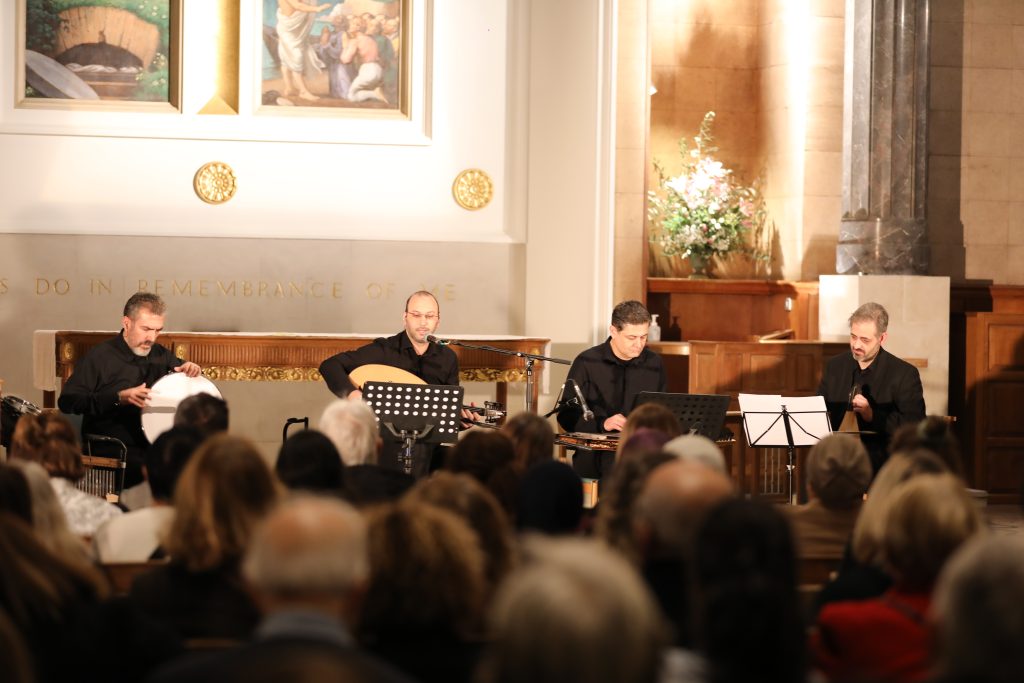
The focal point of the night was “Yine Bir Gülnihâl (Again a Rose Bush)”, a famous Turkish waltz composed by Dede Efendi for his beloved Gülnihâl Hanım. The piece was a fusion of Eastern and Western musical styles, and the qanun, oud, kemenche, percussions and vocals harmonised beautifully, expressing the love and devotion Dede Efendi must have felt. The audience was enchanted by the timeless beauty of this piece, which was a fitting tribute to Dede Efendi and his music. The final piece was “Baharın Zamanı Geldi (The Time of Spring Has Come)”, a celebration of the arrival of spring and one of his most cheerful tunes. The percussion created a festive mood and the kemenche played a lively melody, while the oud and the vocals added some warmth and charm. The audience was delighted by the joy and the energy of this piece, which was a perfect finale for the concert.
